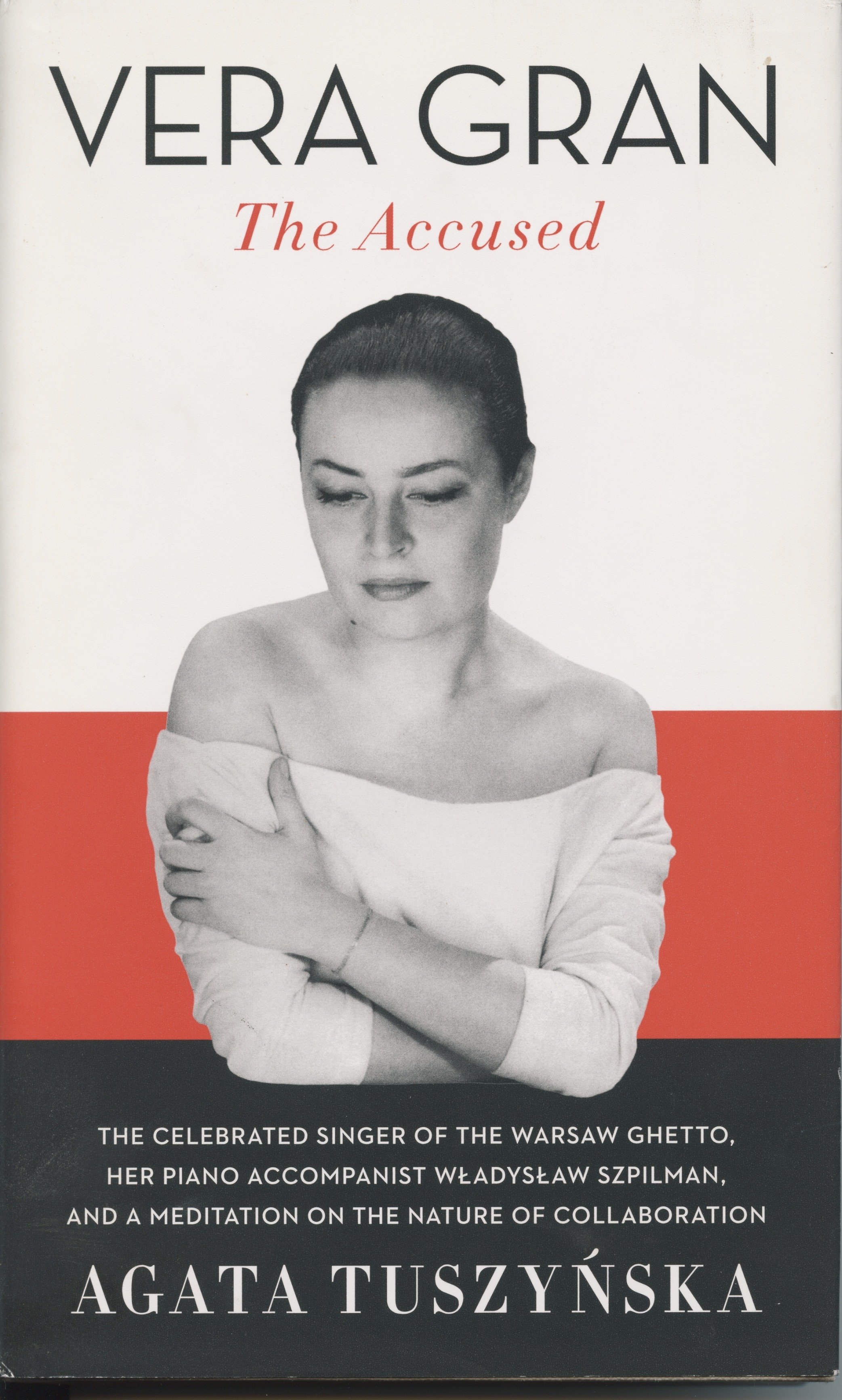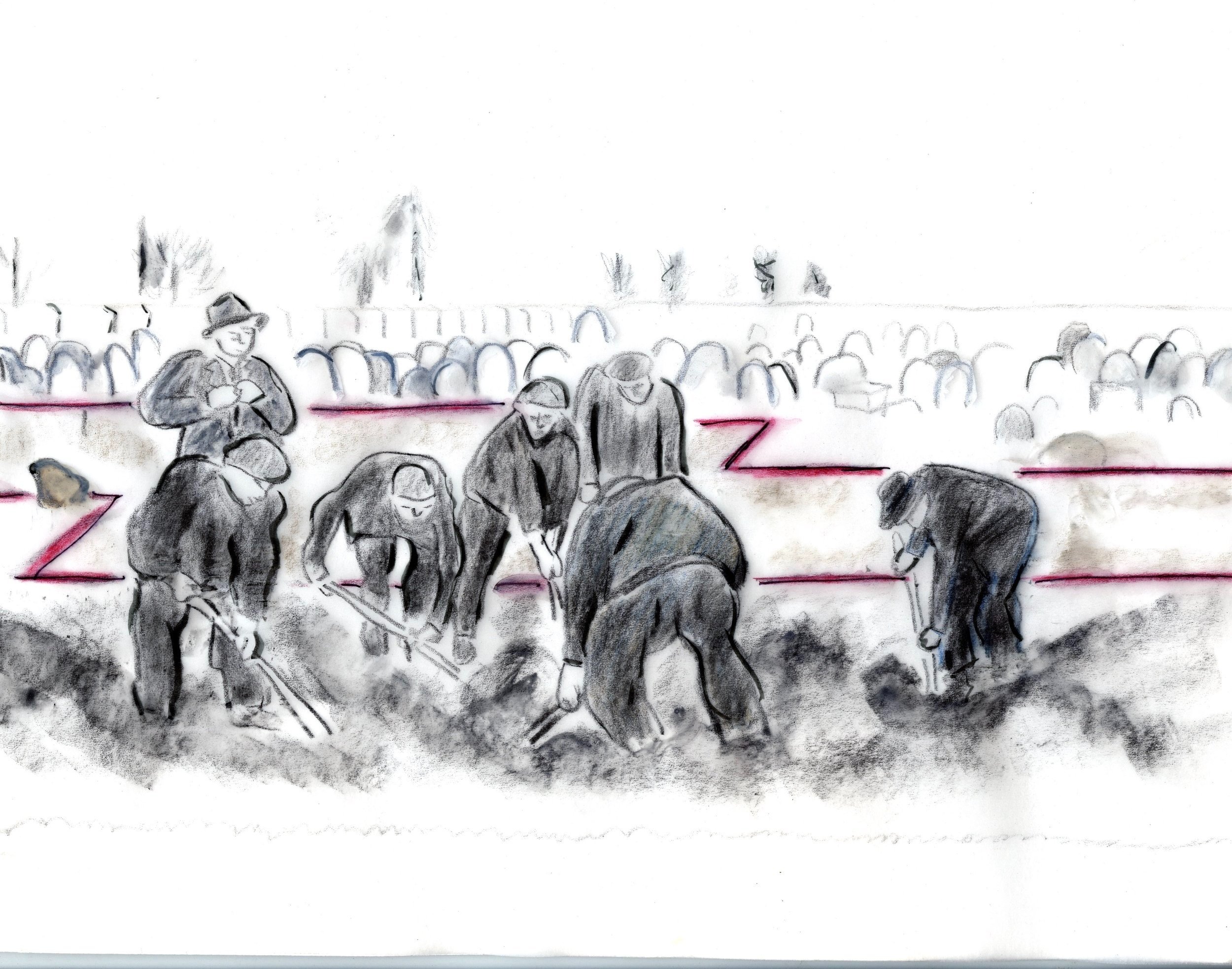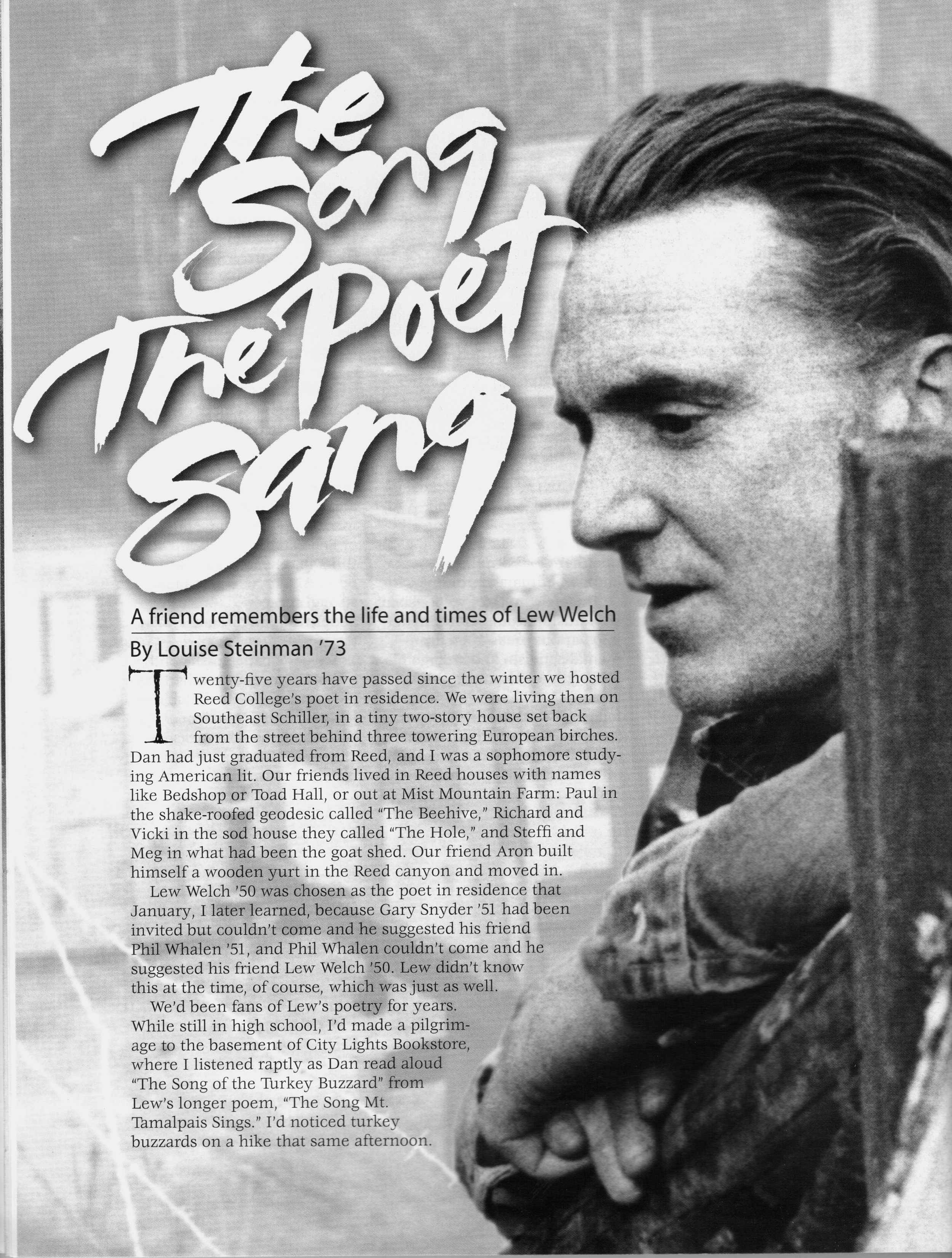Selected Essays and Articles
-

A Celebration of Fisherfolk
-

Meredith Monk: Calling
Essay commissioned for the catalogue of MEREDITH MONK: Calling, [2024, Haus der Kunst, Munich and Oude Kerk, Amsterdam #hausderkunst #meredithmonk
-

That L.A. Bug
Air/Light Magazine, Issue 7, Fall 2024
I never wanted to be born in Los Angeles. My childhood, I suspected, was misplaced. My mother and father were both New Yorkers. Thanks to a trove of correspondence that I discovered after my parents passed away within months of each other, I can pinpoint the exact date—August 1, 1941—that determined my destiny as a native Angeleno…
-

Time Regained: Reading Józef Czapski in Billings, Montana
Los Angeles Review of Books, May 21, 2019
I WOKE UP around 5:00 a.m., disoriented in an unfamiliar bed. I did not know east from west, up from down, where I’d find a floor to take the weight of my body. The hazy proportions of the room gave no clue; curtains blocked the winter light. In the moment my eyes opened, I lost my connection to those essentials that are, as Proust assures his readers, held fast by our psyches during sleep: “[T]he sequence of the hours, the order of the years, and the worlds.”
-

When a Rock is a Stone: Finding Spiral Jetty
Los Angeles Review of Books, August 6, 2018
IN 1970, when artist Robert Smithson first set his gaze on the Great Salt Lake's Rozel Point Peninsula, he knew that he’d found the right site.
-

The Aphasia Book Club
Los Angeles Review of Books, October 5, 2015
Each person here respects the effort, the frustration of trying to locate the words, the sounds that form a sentence. After all, this is not an ordinary book group. This is the weekly meeting of the Aphasia Book Club, intended for those who have suffered damage to an area of the brain that affects the use of language. Larry continues:
When I read a book, it puts me in the future,
even when it’s written in the past.
-

Confronting the Accused: On Agata Tuszynska and Vera Gran
Los Angeles Review of Books, February 27, 2013
We are all collaborators. On a more or less grand scale, for a day or a lifetime. All that differentiates us are the experiences and the circumstances, which allow us to gauge the extent of our compromises.
— Agata Tuszynska, Vera Gran: The Accused
-

Crete Spring: An Appreciation of James HillmanHillman
Los Angeles Review of Books, Jan 29, 2011
What better place than Crete to read about archetypal patterns or, in Hillman's words, "Gods affecting our styles of consciousness." Europa swam back to Crete after being mounted by Zeus in the form of a bull; royal dolphins leap blue waves on murals in the royal palace at Knossos, where King Minos threw Theseus into the labyrinth to face the Minotaur. [“The Cyclops Eats One Last Sailor,” print by Scotty Mitchell]
-

Yizkor Bukher (The Glatstein Chronicles)
June 27, 2011, Los Angeles Review of Books
Why have we never heard of Jacob Glatstein, a modernist whose prose is as mordantly humorous as Philip Roth, as eerie as Kafka, as weighty as Bellow? The answer is obvious: Glatstein wrote in Yiddish, and as Ruth Wisse, the editor of this volume, reminds us, "to a writer, language is fate." [Drawing by Louise Steinman from a 1946 photo in the Memorial Book of the town of Radomsko]
-

Bieler's Broth
A visit to a friend’s house in Beverly Glen during the AIDS epidemic in LA. , published in anthology ANOTHER LA
-

Silent No More
Los Angeles Magazine, October 2005
Virginia McKinney has spent her life helping her students prove they’re not too old to learn.
-

The Truth Shall Set You Free
L.A. Weekly, February 27, 2003
Pumla Gobodo-Madikizela’s hands are delicately boned, with long, tapered fingers. As she gestures, you can’t help noticing them. If you’ve read her book, A Human Being Died That Night: A South African Story of Forgiveness, you can’t help thinking that these are the same hands that reached out to touch the shaking clenched hands of Eugene De Kock, the man known in South Africa as “Prime Evil” for his relentless pursuit and extermination of anti-apartheid activists.
-

The Song the Poet Sang: A Friend Remembers The Life and Times of Lew Welch
Reed Magazine, February 1999
Twenty-five years have passed since the winter we hosted Reed College’s poet-in-residence. We were living then on Southeast Schiller in a tiny two-story cottage set back from the street behind three towering European birches…
-

Living a Still Life; On the Island of Crete, Sharing an Artist’s Vision
Washington Post, December 1992
A visit to my friend, painter Scotty Mitchell, a working painter on Crete for 20 years.
-

Anna Valentina Murch: The Underworld Perspective of an Environmental Artist
Contemporary Architecture, Vol 11, 1989/1990, Lausanne, Switzerland
Since childhood, Murch has been fascinated by ruins and abandoned buildings…
-

Poet of the Revolution: Majid Naficy
LA WEEKLY
FEBRUARY 7, 2001
Why do I speak in poetry?
Because in this heavy mist,
I cannot be a lighthouse
For drifting boats.
THE BACK DOOR TO MAJID NAFICY'S MODEST SANTA Monica apartment is open. The aroma of sweet and sour wafts in from a Chinese hole-in-the-wall across the parking lot. A clay pot full of fresh mint sits on the railing of the small patio. On his bookcase shelves, well-worn volumes in Farsi and a few in English, including Walt Whitman and a Hebrew-English dictionary. On an old desk there's an enlargement device that allows the nearly blind poet to magnify text 60 times so that he can read. Azâd, Majid's 12-year-old son, is at school — but he has left behind ample evidence of an American boyhood: skateboard, baseball mitt, Pokémon cards, sneakers, a Michael Jordan poster taped to the refrigerator.
Majid is a political refugee from Iran, where he was an active participant in the revolution against the shah. He lost his first wife, Ezzat, his brother Sa'id, his brother-in-law Hossein, numerous friends and, ultimately, his country to the death squads of Ayatollah Khomeini's fundamentalist Islamic regime.On the table, there's a framed, faded black-and-white photograph: a young unveiled woman with a heart-shaped face and a shy, serious expression. “This is Ezzat,” Majid says tenderly, as if introducing someone physically present. He has described this photo in a poem, “To a Picture”:
I see you in the middle of the garden
The red roses have covered your skirt.
You seem to be standing on tiptoe
To get a better view of the other side.
Alas, you fell down in the execution field
And my body did not cover you
How short was the landscape of the other side!
But our love still stands upright.
The edge of the picture is torn. “Ezzat's mother used to be in the photo,” he says, “but I promised her that I would cut her out.” There are no photos of Majid and his first wife together. They both lived underground in the dangerous years following the 1979 revolution. “We did not want the secret police to recognize us,” he says. -

The Pharmacist's Daughter
LA Weekly, June 30, 1999